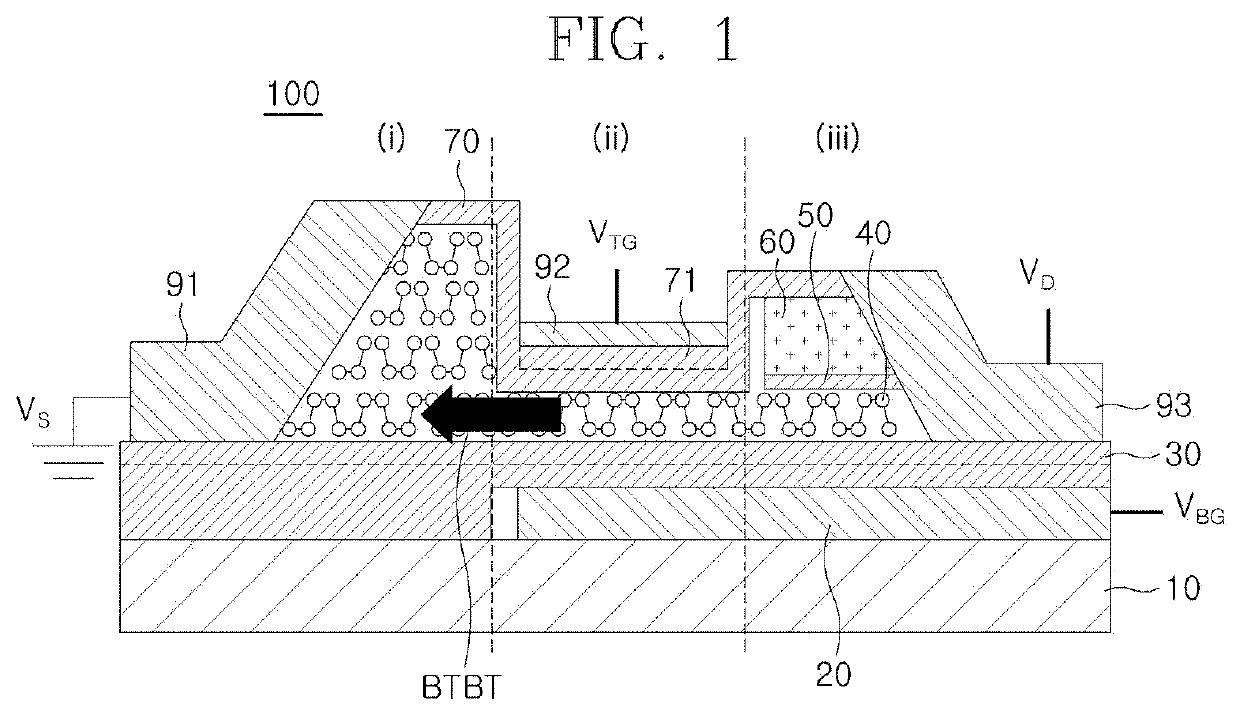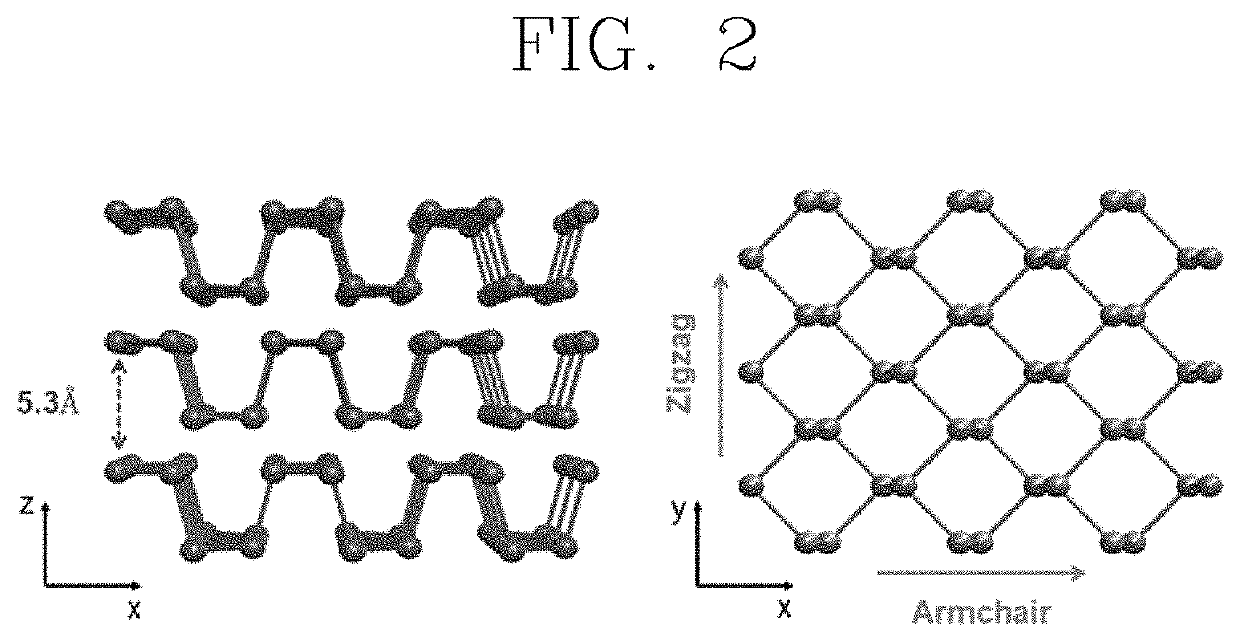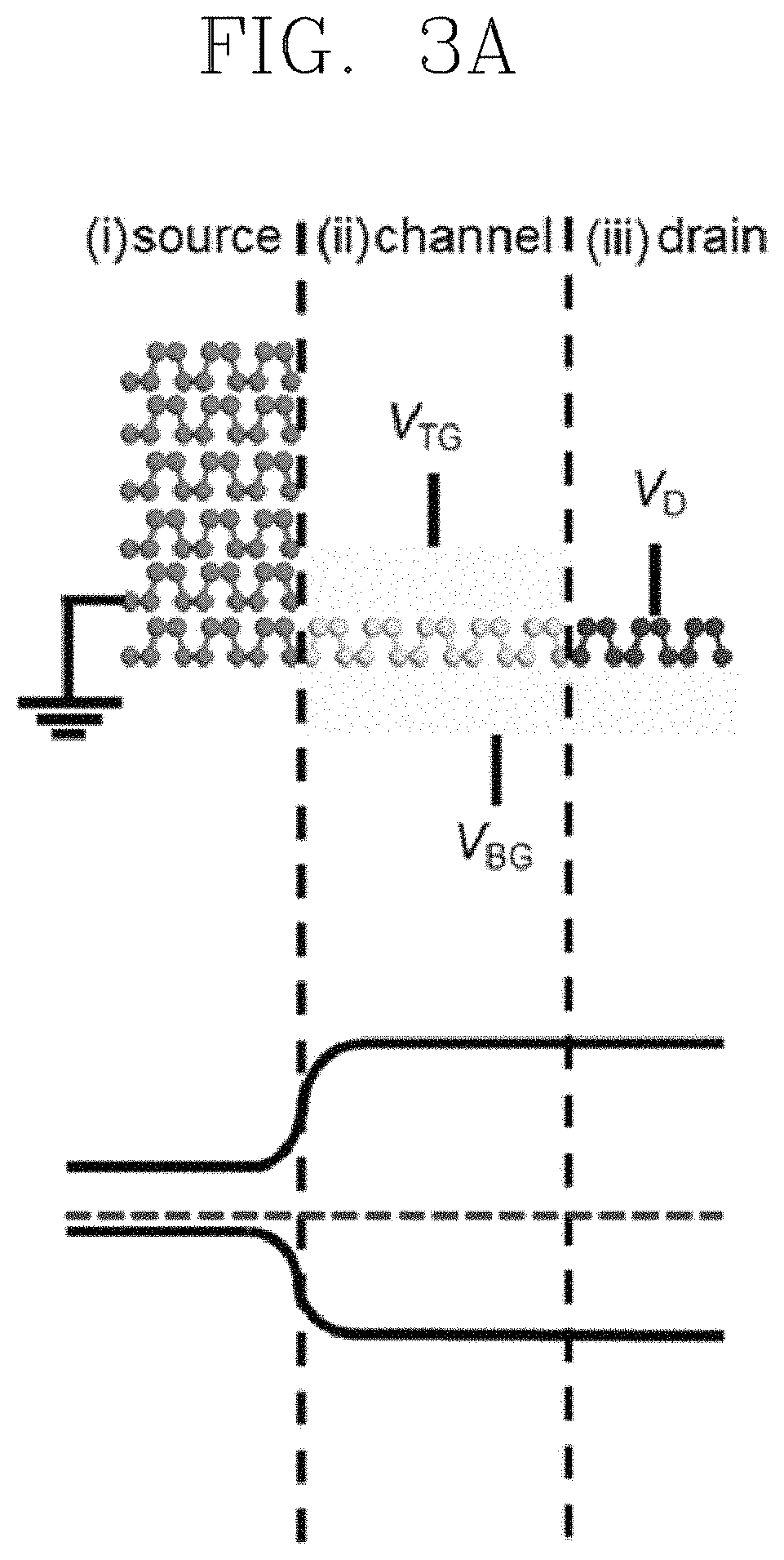2D-3D heterojunction tunnel field-effect transistor
a heterojunction tunnel and field-effect transistor technology, applied in the direction of diodes, semiconductor devices, electrical apparatus, etc., can solve the problems of increasing the integration and compactness of transistors, the switching speed of cmos transistors is less than that of cmos transistors by 100-100,000 times, and the level of recent small increase in transistor integration and compactness has been increasing, so as to achieve the effect of widening the influence of industry and economy
- Summary
- Abstract
- Description
- Claims
- Application Information
AI Technical Summary
Benefits of technology
Problems solved by technology
Method used
Image
Examples
Embodiment Construction
>[0030]The motive for arriving at the present disclosure and the theoretical background thereof will now be described in detail.
[0031]Conventional down scaling of transistors according to Moore's law has enabled today's information technology, but Moore's law is approaching its limit. That is, as described above, a conventional complementary metal-oxide semiconductor (CMOS) transistor needs at least 60 mV of switching voltage (subthreshold swing (SS) 60 mV / dec) each time the current increases ten times.
[0032]As an alternative thereto, TFETs are widely studies as a candidate group for accomplishing SS far lower than 60 mV / dec by means of high ON current I60 (current at which SS becomes 60 mV / dec), due to sub-thermionic SS.
[0033]More specifically, it is theoretically predicted that HJ-TFETs will have high I60, and conventional research has failed to satisfy the theoretically expected value due to problems such as defects occurring at the heterojunction (HJ) interface made of heterogen...
PUM
| Property | Measurement | Unit |
|---|---|---|
| thickness | aaaaa | aaaaa |
| switching voltage | aaaaa | aaaaa |
| thickness | aaaaa | aaaaa |
Abstract
Description
Claims
Application Information
 Login to View More
Login to View More - R&D
- Intellectual Property
- Life Sciences
- Materials
- Tech Scout
- Unparalleled Data Quality
- Higher Quality Content
- 60% Fewer Hallucinations
Browse by: Latest US Patents, China's latest patents, Technical Efficacy Thesaurus, Application Domain, Technology Topic, Popular Technical Reports.
© 2025 PatSnap. All rights reserved.Legal|Privacy policy|Modern Slavery Act Transparency Statement|Sitemap|About US| Contact US: help@patsnap.com



